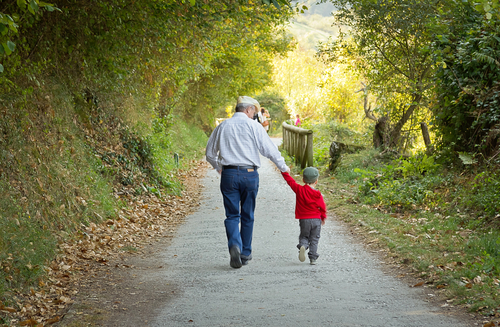We are guests on Planet Earth.
Most of us learn as children to be respectful of the places we visit, to leave them
clean, as we would hope others would do for us: a sort of golden rule of
earthly manners. We have not been worthy of our host. In fact, we’ve been very
poor stewards, misbehaving on a horrendous scale, so much so that
we have changed the planet’s very chemistry, altering its biosystems,
its topography, even its geological structure.
In an age when truth is at a premium and most members of the
media are too frightened to offend their sponsors or owners, it is
incumbent upon us as citizens to investigate and broadcast the truth.
Just as most of the people who fought for our independence from
Great Britain were citizen soldiers, today’s leaders in the movement
to save the earth for future generations take their authority from
the right to breathe clean air and eat uncontaminated and available
food. At an award ceremony in 2008 in which ordinary citizens
were being acknowledged for their work in truth telling, the award-winning
journalist Bill Moyers said that “the most important credential
of all is a conscience that cannot be purchased or silenced.”
Understanding the depth and scope of the
ecological crises before us is not easy.
If we are to understand the issues swirling around us—from global warming
and climate change to skyrocketing resource costs, to the state of our
soil and seed, to disappearing water resources, to food riots around the world—
we have to understand that they derive from one simple but telling truth.
We have numbed ourselves to what is happening around us.
On some level, we sense what we are losing—that most basic connection to the
earth that is an ancestral birthright of our species. And it is a loss
that must be healed.
In the many decades since Rachel Carson first shocked the world
with the realities of the killing power of toxic pesticides like DDT,
the environmental movement has been missing a key ingredient—a
spiritual sensibility. As Rabbi Michael Lerner says,“The environmental
movement can’t just teach about the scientific facts; it has
to also teach about a new spiritual vision.” It is not possible to see
a complete picture of what is happening to us and the earth we all
share without examining it through a lens of spiritual consciousness.
That vision Rabbi Lerner is talking about is creating what would
have previously been seen as unlikely alliances. Nobel laureate and
director of the Center for Health and the Global Environment at
Harvard Medical School, Dr. Eric Chivian, met for lunch one day in
2005 with Rev. Richard Cizik, a leader of the National Association of
Evangelicals, to discuss their shared concern for the growing human
impact on the earth’s resources. Together they formed the Scientists
and Evangelicals Initiative. “Whether you believe God created life
on earth, or that it evolved over billions of years, it doesn’t matter.
We all feel that life, however it came to be, is sacred,” says Chivian,
“And it is our shared duty to protect it.” In May 2008 the environmental
movement’s odd couple was named to Time magazine’s list
of the one hundred most influential people.
Enter the giveaway…
[dynamic-sidebar id=’Custom Widget 2′]

Green Diva Meg
July 30, 2014 at 12:18 pm
this book has such warmth, depth and hope. even in the midst of our environmental trauma, there is so much goodness. such a wonderful reminder to stay connected to nature!
Pingback: Earth Calling - Excerpt & Giveaway | Earth Calling
Anne
July 31, 2014 at 7:13 am
I’ve known Ted since he was a teen-ager. Thrilled to be able to read this excerpt of his book. He is an exceptional person!
Pingback: Earth Calling: The "Silent Spring" for the 21st Century - myEARTH360 (the blog)